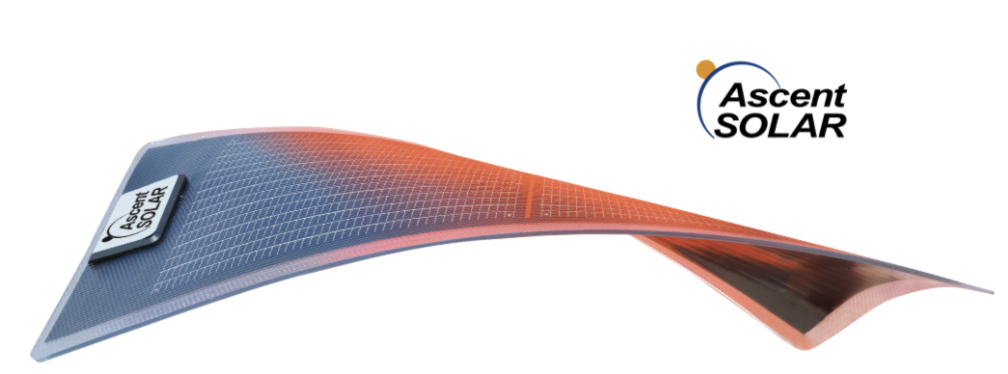
Ascent Solar Technologies, Inc. (NASDAQ: ASTI) has introduced a new line of easy to integrate Space Hardware Development Kits (HDKs) during the Space Foundation Space Symposium in Colorado Springs, Colorado, from April 17-20, 2023.
Ascent’s new offer packages technologies and approaches, matured previously in collaborations with NASA and JAXA, into easy to consume HDKs that simplify the design and integration of solar power generation, accelerate mission schedules and boost spacecraft performance while delivering significant mass efficiencies. Benefits of the HDKs include:
- Engineered for Space: Solar cells encapsulated in space-rated laminate with unrivaled on-orbit specific power and longevity, as demonstrated on-orbit with NASA.
- Plug & Fly
 Solar Integration: HDKs engineered to easily interface with proprietary and COTS components, including systems, subsystems and buses.
Solar Integration: HDKs engineered to easily interface with proprietary and COTS components, including systems, subsystems and buses. - Modular Mission-Enabler: HDKs configurable to mission power, mass and delta-v budget requirements, including solar arrays optimized for LEO/GEO, and that are cislunar and deep space-capable.
- Sustainable Space Solar Solution: Robust arrays that provide reliable power, even if impacted by micrometeoroid or orbital debris (without creating more space debris).
- Assured, On-Time Delivery: In-house produced solar modules, backed by MW of proven production capacity.
“Balancing spacecraft cost, power, mass, and delta-v budgets often presents a challenge for space mission managers. Ascent now simplifies this process with our new range of Space HDKs, an innovative space power generation solution that takes a holistic approach to maximizing benefits to the mission, and its budget constraints, instead of optimizing to a subsystem component requirement. The Space HDKs are designed for missions of today and the future and include cubesat, smallsat, and electric propulsion optimized arrays that provide both vehicle mass savings and increased performance. Ascent is also developing even higher power, higher voltage, and more efficient space HDKs to serve the next generation of space missions.” — Julian Miller, Business Development Manager of ASTI
